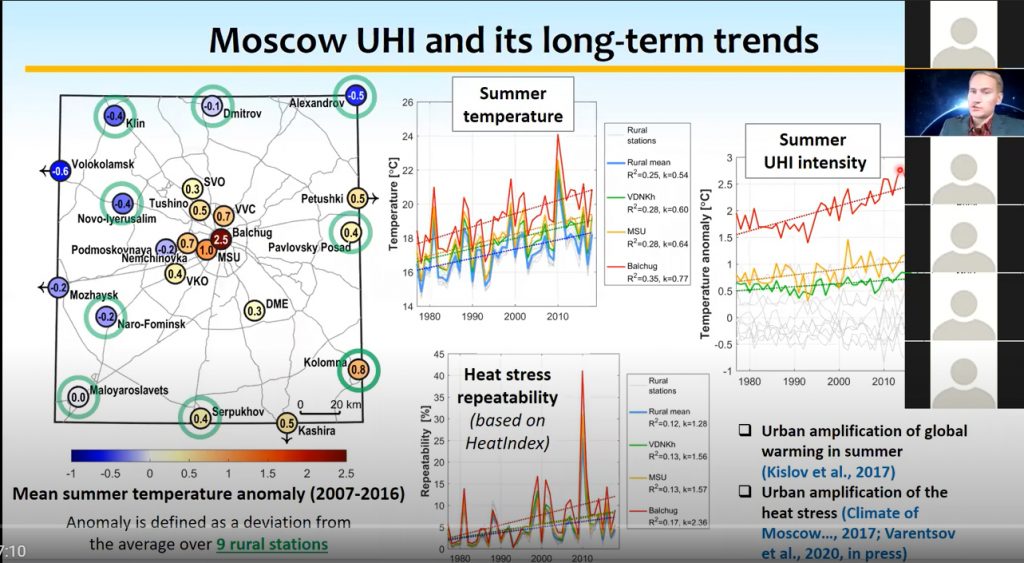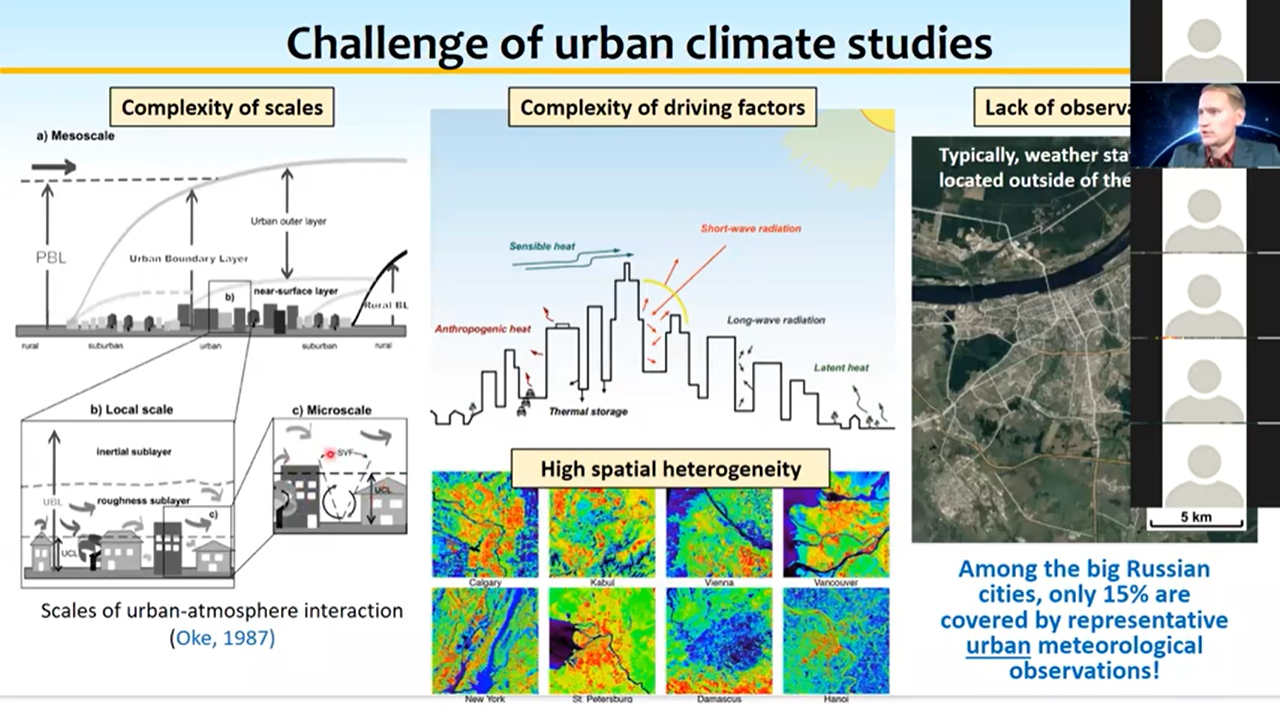Mikhail Varentsov, an expert from the Smart Urban Nature laboratory, presented the results of numerical modeling and experimental studies in the field of urban meteorology and climatology on the example of the Moscow megacity and Russian Arctic cities. The presentation took place September 23, 2020, on the 33rd Scientific and Educational Seminar on Supercomputer Modeling of the Climate System.
The seminar was devoted to various aspects of applying supercomputer modeling methods to solving problems of weather and climate forecasting. The seminar is organized by Lomonosov Moscow State University (MSU), the Federal Service for Hydrometeorology and Environmental Monitoring and the Russian Academy of Sciences with the support of the Moscow Center for Fundamental and Applied Mathematics.
The report covers the experience of solving such scientific problems as the lack of data of actual observations in the urban environment, which are necessary for the study of the urban climate and the factors of its formation, for the verification of models, as well as for the tasks of operational monitoring. On the example of the author’s works, performed in co-authorship and close cooperation with colleagues from the Geography Faculty of Moscow State University, Research Computing Center of Moscow State University, Hydrometeorological Center of Russia, Institute of Atmospheric Physics named after A.M. Obukhov and other organizations, the experience of modeling the weather and climate of urbanized territories (Moscow) within the framework of the mesoscale model of the atmosphere COSMO and determining the input parameters of the urban environment necessary for the model was considered. Also the results of empirical studies based on data from various monitoring systems, including crowdsoring data from the largest network of personal weather stations, Netatmo were presented.

Another research area is the Arctic region. These cities are the unique experimental sites for studying the influence of anthropogenic load on the microclimate, ecosystems and processes in the atmosphere. However not long ago these territories remained terra incognita for urban climatology. To fill this gap, it was organized a series of experimental measurement campaigns using various observing tools, from automatic weather stations and temperature sensors to UAVs and drones.

